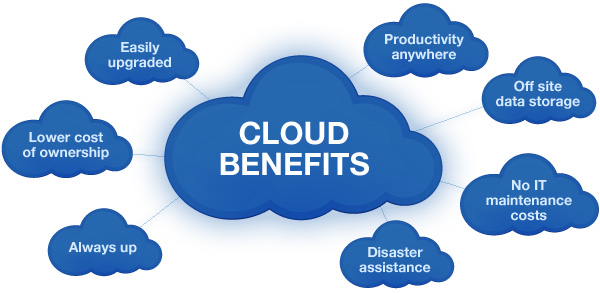Exploring the importance of data privacy and personal information
Exploring the importance of data privacy help protect your online activities by encrypting your internet connection.

In an era defined by the digital revolution, THE importance of data privacy has become one of the most valuable commodities.
From online shopping and social media interactions to healthcare records and financial transactions, our lives are increasingly intertwined with the digital realm.
With this shift, the importance of data privacy and safeguarding personal information has risen to the forefront of societal concerns.
In this blog post, we will explore the reasons why data privacy is crucial, its implications for individuals and society, and the measures we can take to protect our personal information.
Understanding the importance of Data privacy:
Before delving into the importance of data privacy, let's define what it means. Data privacy refers to the protection of an individual's personal information, ensuring it remains confidential and secure.
Personal information includes a wide range of data, such as names, addresses, phone numbers, email addresses, financial records, health records, and more. In the digital age, this information is often stored electronically, making it susceptible to theft, misuse, or unauthorized access.
1. Protecting Individual Rights:
One of the fundamental reasons for upholding data privacy is to protect individual rights. Every person has the right to control their personal information and decide how it is collected, used, and shared. When data privacy is compromised, individuals lose their autonomy over their own information, leading to potential consequences like identity theft, fraud, or the misuse of personal data for advertising or political purposes.
Consider the scenario of an individual's browsing history and online behavior being tracked without their consent. This invasion of privacy can lead to the manipulation of their preferences and opinions, affecting their autonomy and decision-making.
2. Preventing Identity Theft:
Identity theft is a grave concern in the digital age. When personal information falls into the wrong hands, malicious actors can impersonate individuals, leading to financial loss and reputational damage. Stolen identities can be used to open fraudulent bank accounts, apply for loans, or commit various crimes, all while the victim bears the consequences.
Protecting personal information through data privacy measures can significantly reduce the risk of identity theft, as it becomes more challenging for cybercriminals to access and misuse sensitive data.
3. Safeguarding Financial Information:
Our financial data is a prime target for cybercriminals. Without adequate data privacy protections, financial records, credit card information, and banking details can be exposed to theft and unauthorized access. The consequences can range from drained bank accounts to ruined credit scores and financial ruin.
The importance of data privacy becomes evident when we realize that the loss of financial data can have long-lasting repercussions, affecting an individual's financial stability and future prospects.
4. Protecting Personal Reputation:
In today's interconnected world, our online presence is a significant part of our identity. Social media profiles, online reviews, and public records contribute to our personal reputation. Any breach of data privacy that exposes personal information or sensitive content can damage our reputation and personal relationships.
Consider the implications of private photos or messages being leaked without consent. Such breaches can lead to emotional distress, harm relationships, and have a lasting impact on an individual's life.
5. Ensuring Healthcare Confidentiality:
Healthcare records contain some of the most sensitive personal information. Patients trust healthcare providers to keep their medical histories, diagnoses, and treatment plans confidential. Any breach of this trust not only jeopardizes an individual's privacy but can also have serious health and legal ramifications.
Data privacy in healthcare is vital for patient trust, effective medical treatment, and the protection of sensitive health information.
6. Promoting Ethical Business Practices:
Data privacy isn't only about protecting individuals from malicious actors. It's also about holding businesses and organizations accountable for their data handling practices. By enforcing data privacy regulations and standards, we encourage ethical conduct in the corporate world.
When companies prioritize data privacy, they build trust with their customers and stakeholders. Conversely, data breaches and privacy violations can lead to public backlash, legal consequences, and financial losses for businesses.
7. Fostering Innovation and Technology Adoption:
In the digital age, data fuels innovation and technological advancements. But for individuals to fully embrace and benefit from these innovations, they must trust that their personal information is secure.
8. Protecting Democracy:
Data privacy also has implications for democracy itself. The misuse of personal data in political campaigns, such as the Cambridge Analytica scandal, can undermine the integrity of elections and the democratic process. Ensuring data privacy is essential to preserving the fairness and transparency of democratic systems.
9. Mitigating Discrimination:
In the digital realm, algorithms and artificial intelligence often make decisions that affect individuals' lives, from loan approvals to job applications.
10. Strengthening Cybersecurity:
Protecting personal information is a key component of cybersecurity practices. When individuals take steps to safeguard their data, they contribute to the overall resilience of the digital ecosystem against cyber threats.
Protecting and Importance of Data Privacy with Personal Information: What Can You Do?
Now that we've explored the importance of data privacy, let's discuss what individuals can do to protect their personal information:
- Use Strong Passwords: Create unique and complex passwords for online accounts, and consider using a password manager to keep track of them.
- Enable Two-Factor Authentication (2FA): Use 2FA wherever possible to add an extra layer of security to your online accounts.
- Regularly Update Software: Keep your operating systems, apps, and antivirus software up to date to protect against vulnerabilities.
- Be Cautious with Personal Information: Think twice before sharing personal information online, especially on social media.
- Use Encryption: Enable encryption on your devices and use encrypted messaging apps to protect your communications.
- Check Privacy Settings: Review and adjust the privacy settings on your social media accounts and apps to limit the data you share.
- Educate Yourself: Stay informed about data privacy issues and the latest cybersecurity threats.
- Support Data Privacy Legislation: Advocate for stronger data privacy laws and regulations to hold businesses and organizations accountable.
- Use a Virtual Private Network (VPN): A VPN can help protect your online activities by encrypting your internet connection.
- Regularly Monitor Financial Statements: Keep an eye on your bank and credit card statements for any suspicious activity.
Data privacy is not just a matter of personal concern; it is a societal imperative. It encompasses individual rights, cybersecurity, ethical business practices, and the very fabric of democracy.
Protecting personal information is essential for safeguarding our identities, our financial well-being, and our trust in the digital world.
By understanding the importance of data privacy and taking proactive steps to protect our personal information, we can navigate the digital age with confidence and security.
What's Your Reaction?















